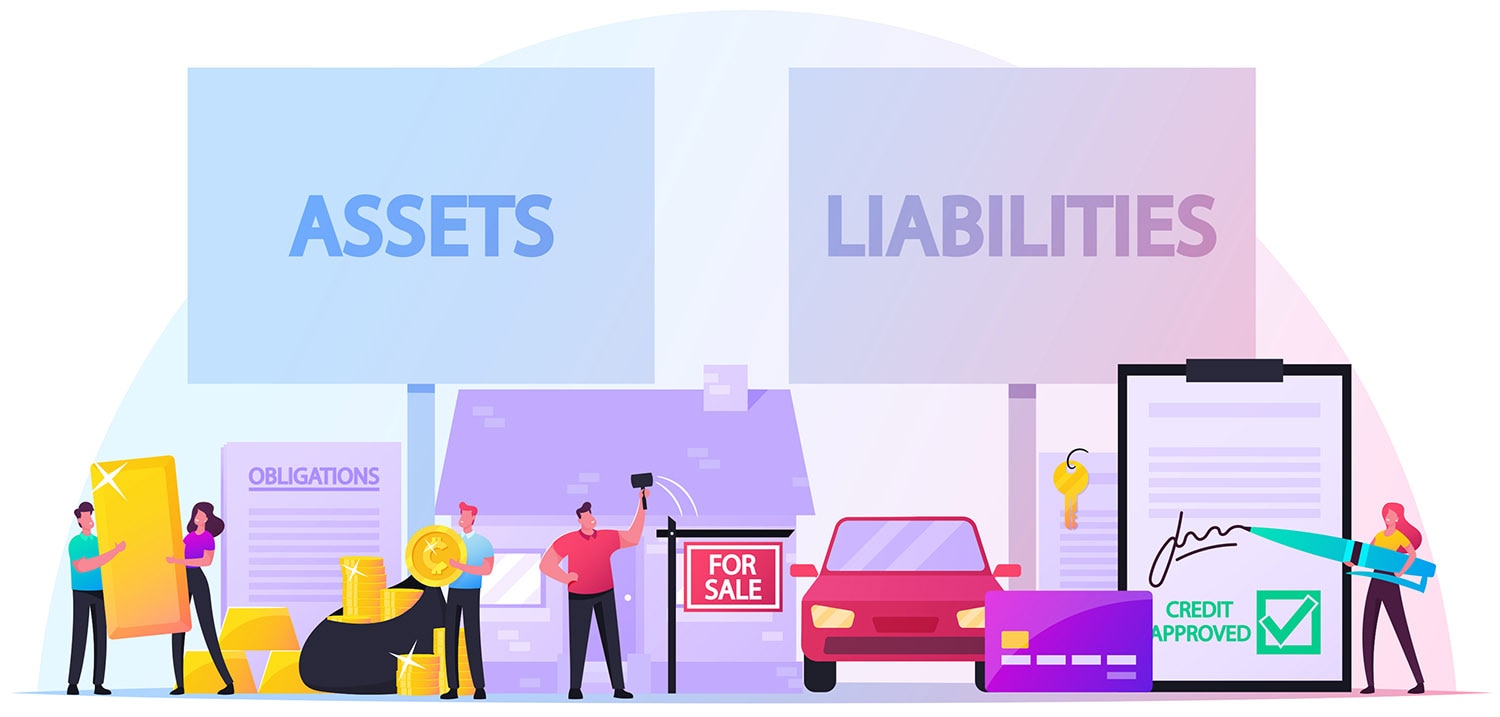Is a Car an Asset or a Liability?
Learn the difference between an asset and a liability and where your car falls.
 Shutterstock
Shutterstock
As you begin to take a deeper look into your finances, reviewing your assets and liabilities can help you figure out where you stand. Some items and accounts, such as your savings account or credit card debt, are easier to slot into the right columns.
But is a car an asset? That's a bit trickier. The answer isn't always straightforward and may depend on your situation.
What Are Assets and Liabilities?
Your net worth is the value of everything you own minus what you owe. It's one way to look at your overall financial health. Determining your net worth relies on two factors: your assets and your liabilities. To figure out the number, add up your assets and subtract your liabilities.
Your assets are the items you own that have a monetary value. Typical assets include any cash you have, the value of your 401(k), jewelry you own, and even your comic book collection. Your home's value counts, too, even if you're paying a mortgage because it's something you could sell for cash.
On the other hand, liabilities are things you owe—financial obligations to other parties. So, your credit card debt is a liability, as is your mortgage, any student loans you have, and auto loans. If your liabilities are much higher than your assets, it's a sign you may want to work on your financial health—especially because your overall finances impact your ability to get financing for a car.
Is a Car an Asset or a Liability?
In accounting terms, your car is a depreciating asset. This means your vehicle may have value right now and you could sell it. However, while you own the car, that value usually goes down over time.
Driving your car a lot, its specific design, high repair costs, and even the model and manufacturer can all impact your vehicle's value. Typical wear and tear play a role, too, as do the costs of maintenance, gas, and insurance.
When these factors end up lowering your car's value, it becomes a depreciating asset. If you've taken out a car loan, car depreciation is something you may want to watch carefully, especially if you plan to sell your vehicle after a few years. Depreciation could leave you upside down on your loan, where what you owe is more than the car's value.
How to Determine if Your Car is an Asset
While depreciation hits almost every vehicle, there are a couple of key questions you can ask to help figure out if your car is an asset or a liability.
How Much Is Your Car Worth?
An easy way to figure out your car's market value is by visiting a couple of trusted sites such as
You can also bring the car to your dealer and get a quote from them. This estimate may be helpful to see where you stand now if you're planning on trading in your vehicle soon.
If you want to run the numbers on your own, estimate that your car generally loses about 10% to 15% of its value right away and then an additional 10-20% for every year of ownership, depending on the make and model.
How Much Do You Owe?
Next, look at the liabilities side. First, start with any financing on your car. Review your total loan amount and the number of years you'll be paying it down. Then consider how much you've already paid and where your remaining loan stands now.
While your loan is a liability, as you pay it down over time, that part gets smaller. Once you pay off your loan, you'll own your car free and clear, and you can count it as an asset.
Can You Add to Your Car's Value?
There are a few things you can do to add to the value of your car, both over the short and long term.
- Make money driving: Consider offering rideshare or delivery services by signing up with an app
- Renting your car out for short-term use: Certain companies allow you to offer this service to others
- Take care of your car: Stay up to date with necessary checkups, and drive carefully to help avoid crashes
- Buy a car that retains value longer: Some cars are known for depreciating unhurriedly over time
Do the Math
The final step is to run the numbers. Take your vehicle's current value, subtract the current loan amount, and you'll be able to clearly see if it counts as an asset or liability. Just keep in mind that every year you'll need to account for the changing value of your vehicle and the remaining amount on your loan if you have one.
Written by humans.
Edited by humans.
 Liz Froment
Liz FromentI love learning about money — deals, financing, and what to avoid. All that came in handy after my own extensive car search, where I put everything I learned about the financial side of things to use. That's where I can help you too. I want to give you tools to help you find the best vehicle that will fit your practical and financial needs.
Related articles
View more related articles